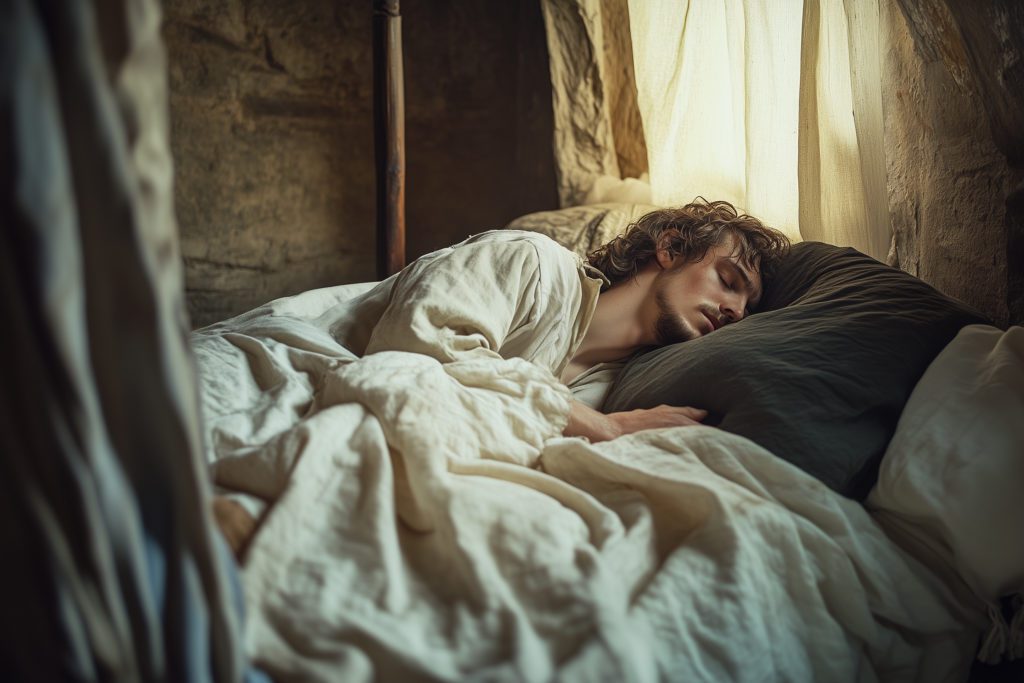
Cultural Variations in Sleep: Insights From Around the Globe
Cultural practices play an important role in shaping our sleep habits and how long we sleep. Learn about sleep differences around the world.

Sleep is one of the most important things that you do every day. It is a universal fact that everyone needs sleep to function. Yet, sleeping habits and even duration can vary greatly around the world. How you sleep greatly depends on where you live.
Culture plays a significant role in sleep habits. To compare cultural variations in sleep, we decided to take a look at the research on variations in sleep around the world. Let’s take a closer look.
Which Countries Sleep the Least? The Most?
A study by researchers at Nokia Labs and the Korea Advanced Institute of Science and Technology used smartwatch data to examine cultural factors that influence sleep. There were 11 countries included in the study, among them the United States, Japan, Finland, and Canada,
Japan had the shortest sleep duration, averaging less than seven hours a night. Other studies have also found that people in Japan get less sleep, as well. This is likely because Japanese work long hours, which makes it more difficult to sleep for longer periods of time. Finland averaged the most sleep at eight hours. Countries that placed a greater emphasis on individualism, like Finland, had longer sleep durations.
The effect of daily exercise on sleep varied among the countries, as well. In the United States and Finland, exercise had a greater effect on sleep compared to Japan, where exercise did not seem to affect sleep duration or quality at all.
Sleep Habits Around the World
Since different countries have different lifestyles, work, and environments, sleeping looks different depending on where you are in the world. Here are some sleep habits from all around the world.
Inemuri (Napping in Public) - Japan
The practice of napping in public or Inemuri is quite common among Japanese people. In Japan, taking a nap in public is a sign of conscientiousness. It is an indicator that a person is working hard. A person might take a nap at work or on the subway, and it’s seen as completely acceptable.
Sleeping Naked - United Kingdom
In the United States, sleeping nude is not all that common. Only eight percent of Americans sleep in the buff according to a survey. Most people in the U.S. sleep in a tank top or T-shirt plus underwear or underwear bottoms only.
People in the U.K., by contrast, prefer to sleep nude. A third of Britons sleep without any clothes, according to a recent study. This is higher than most other countries surveyed, including the U.S., Mexico, and Japan.
Relaxing Bedtime Scent - Mexico
In Mexico, scent plays an important role in preparing for bed. In a survey, 92 percent of respondents from Mexico felt that a fresh, pleasant scent was essential for a relaxing bedroom. Indeed, certain scents like chamomile and lavender have been shown to help induce sleep.
Bedtime Meditation or Prayer - Mexico
In one survey, 62 percent of respondents from Mexico either meditated or prayed before bed. Meditation and prayer are quiet, relaxing activities that can help induce relaxation and calmness before bedtime, making it easier to fall asleep.
Siestas - Mediterranean and Southern Europe
Many people in Latin America, Spain and other Southern European countries take siestas in the afternoon, although it has become less popular in recent years in Spain. Siesta means “midday rest.” It is a rest break or nap taken in the mid-afternoon. Taking regular siestas may be beneficial to heart health. Studies have shown that coronary mortality is low among populations where the siesta is common.
Bedtime Cup of Tea - United Kingdom
In the United Kingdom, tea is a big part of the culture. More than 100 million cups are consumed daily there. It is entrenched in the daily way of life. Not only do they drink tea during the day, but people in the U.K. tend to wind down with a soothing cup of decaffeinated tea before going to bed, as well. Tea contains L-theanine, an amino acid that can promote relaxation.
Early Bedtimes - Australia
Multiple studies have found that people in Australia tend to go to bed earlier than those in other countries. Australians tend to turn in just after 10:45 p.m. each night. That’s almost an hour earlier than people in the U.S. who head to bed at around 11:46 or later each night.
The reason why Aussies go to bed early is because they tend to be early risers. In the Global Sleep Survey conducted by Phillips, 45 percent of Australians say they wake up before 7 am every morning.
Late Bedtimes - Norway
Norway’s average bedtime is 12:16 a.m. And, during the time of midnight sun, which occurs in the spring, people in Norway tend to stay up even later than this. Because the sun doesn’t set, it’s not uncommon for summer festivals in Norway to last until midnight or later.
Co-Sleeping - Japan
In America, families sleeping in one room isn’t common. However, this practice is standard in other countries. Co-sleeping is more common in Eastern cultures—especially in Japan. Families often sleep together in one room in Japan. In Afghanistan, families often share one room, as well.
Worry Dolls - Guatemala
In Guatemala, some people use “worry dolls” to help them fall asleep at night. These tiny dolls are usually made of wood and dressed in Mayan clothing. Before bed, Guatemalans tell these dolls their worries and fears. They then place the dolls under their pillows to help them get a better night’s rest.
Worry is one of the biggest things that keeps people awake at night. So, using these dolls might just improve sleep.
One Thing is Clear: Sleep is Universally Important
There might be many different sleep habits around the world. But, one thing that is universal around the world is the importance of sleep. In the Phillips Global Sleep Survey, which surveyed people from the United Kingdom, United States, South Korea, France, Brazil, Australia, China, Japan, Germany, and the Netherlands, 96 percent of participants said that sleep is important to them.
No matter where you are located in the world, good quality sleep is essential for health and can add years to your life.

Written by
Emily Mendez
Emily Mendez is a former therapist and mental health author. She is one of the leading voices in mental health. Emily's writing has appeared in eCounseling, SonderMind, and more. Emily is frequently interviewed by Healthline, Fatherly, INSIDER, Family Circle, and other national media for her advice and expert opinion on the latest mental health topics.
Download Pillow
Get help
Press & News
Legal
Connect
X (Twitter)
Company
Copyright © Neybox Digital Ltd.



